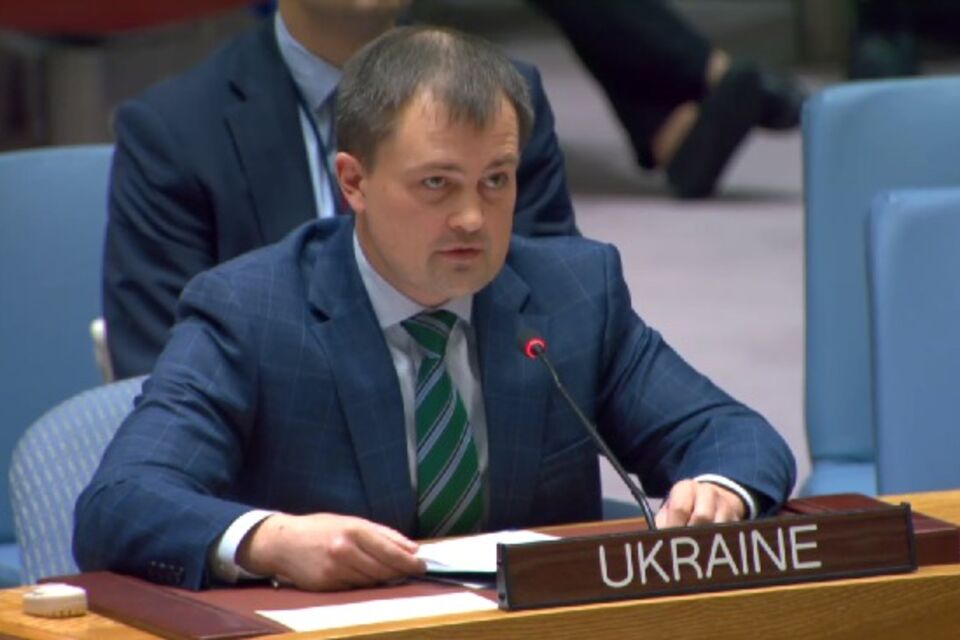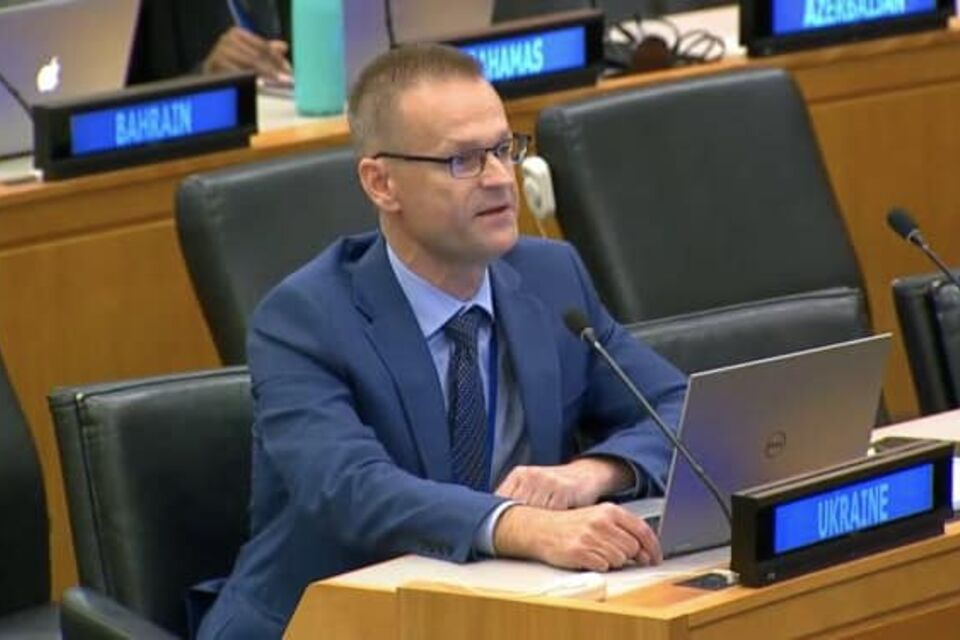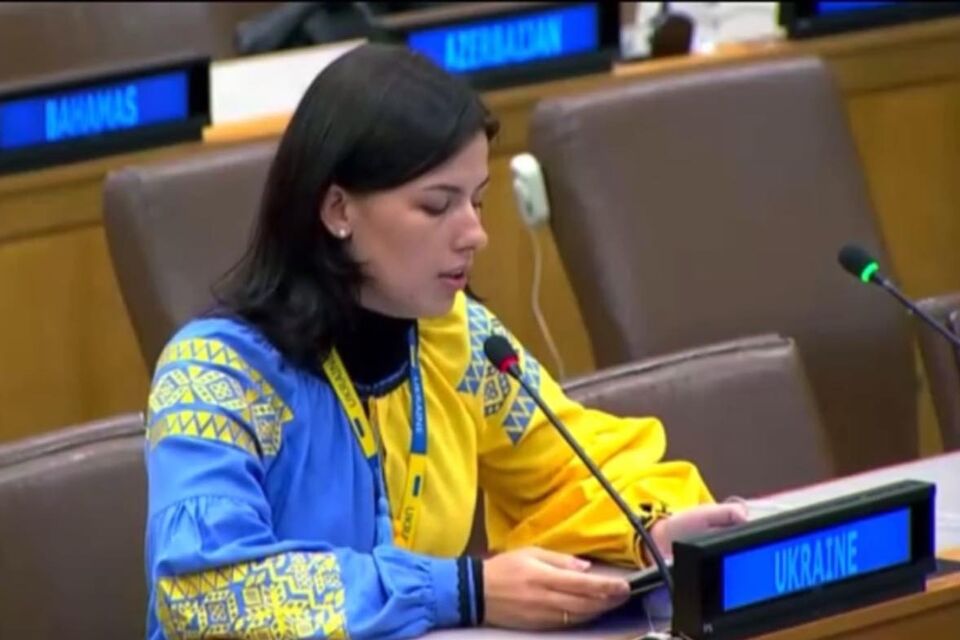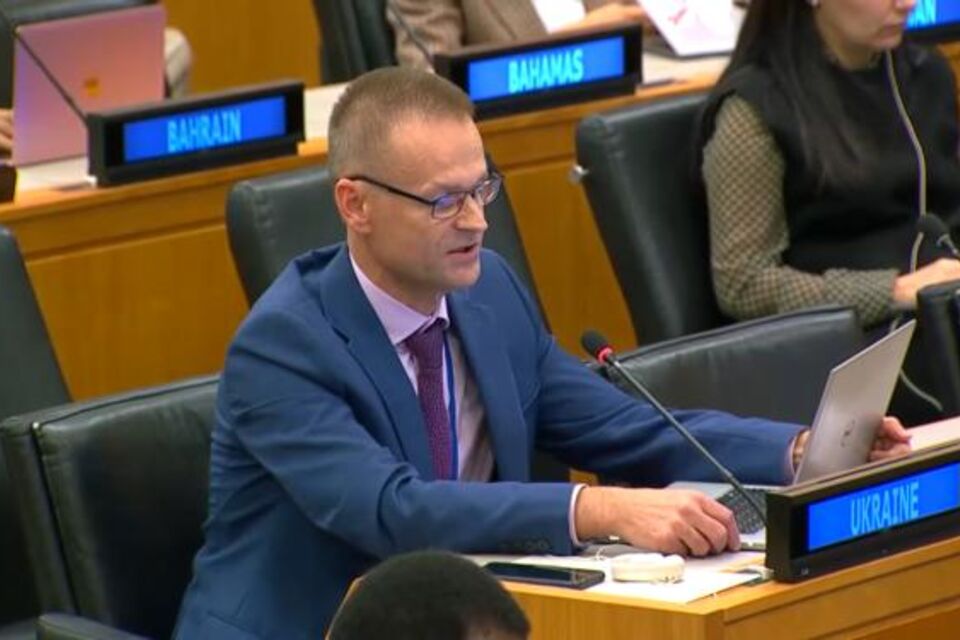Виступ делегації України Пункт 18. Сталий розвиток
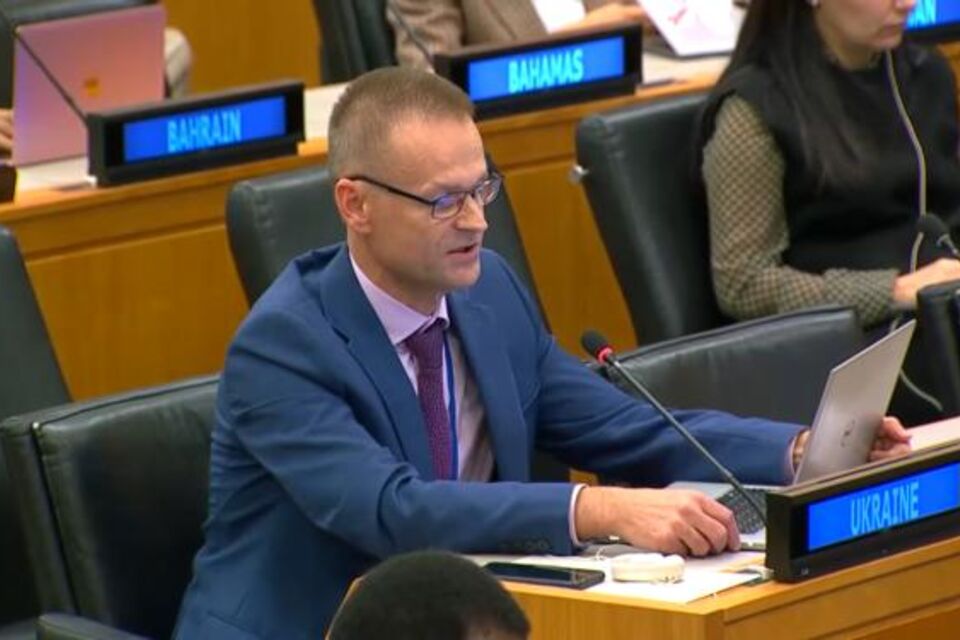
Mr. Chairman,
The adoption of the 2030 Agenda for Sustainable Development in 2015 marked a substantial shift in both national sustainable development policies and international cooperation. Ukraine supports the SDG concept as an important tool to promote fundamental transformations on social, economic and political tracks at national, regional and global levels.
We remain committed to the implementation of all the 17 SDGs and the respective targets. Before the full-scale military invasion of my country in February 2022, Ukraine was among the leaders in its region in terms of adaptation of the SDGs. We generally achieved the progress toward 14 of 17 Goals, in particular in the area of poverty reduction (SDG1), educational reform (SDG4), renewable energy (SDG7), decentralization reform within the framework of sustainable urban and community development (SDG11). As a kind of intermediate result on this path, Ukraine presented its first voluntary national review at the 2020 High-level Political Forum on SDGs.
We also fully recognize the importance of the active involvement of information and communication technologies for the successful implementation of the 2030 Agenda for Sustainable Development. Despite the current extreme challenges before Ukraine, my country remains an active participant in the introduction of global innovations and the training of highly educated specialists in this field.
Today's global environment, dominated by conflicts, pandemics and climate change, poses serious concerns for the implementation of the 2030 Agenda. The war that Ukraine is facing, significantly undermined progress in the implementation of the
SDGs at both the national and global levels. SDG15 on ecosystems, forests, desertification, land degradation and biodiversity may serve as a clear example of such a negative impact.
Violations of the inviolability of the Chornobyl exclusion zone, seizure and threat to the security of the Zaporizhzhia Nuclear Power Plant, hostilities at chemical enterprises in the Donbas, the blowing-up of the dam at the Kakhovka Hydroelectric Power Plant and the Togliatti-Odessa ammonia pipeline have already caused irreparable damage to the environment.
2,500 cases of environmental damage caused by Russia’s aggression have already been recorded, and the Prosecutor General's Office of Ukraine is investigating 14 cases of ecocide.
The detonation of the Kakhovka Hydroelectric Power Plant by the Russian occupiers on 6 June 2023 was a heinous war crime of ecocide, and, in fact, an environmental weapon of mass destruction.
The aggression against Ukraine has already caused >57 bln USD in environmental damage. 495,000 hectares, including 10 national natural parks, 8 reserves, 2 biosphere reserves, remain under foreign occupation. Almost a third of Ukrainian forests have been damaged. 600 animal species were affected, and 80 animal species are on the verge of extinction.
Ukraine is one of the most mined countries in the world: >174,000 km2 (about one third of Ukraine's territory) remain potentially dangerous because of Russian mines and UXO.
This is just one example of how the ongoing war has seriously undermined progress towards one SDG. This applies to much wider range of the Goals, both nationally and globally. It includes addressing poverty, food security, education, water and sanitation, energy, economic growth, resilient infrastructure, cities and human settlements, climate change. The list is not exhaustive.
Let me reiterate that the sooner this war ends and the respect for international law and the UN Charter is restored, the sooner the international community can focus more efforts on funding and promoting the SDGs, to which Ukraine remains firmly committed.
Thank you

